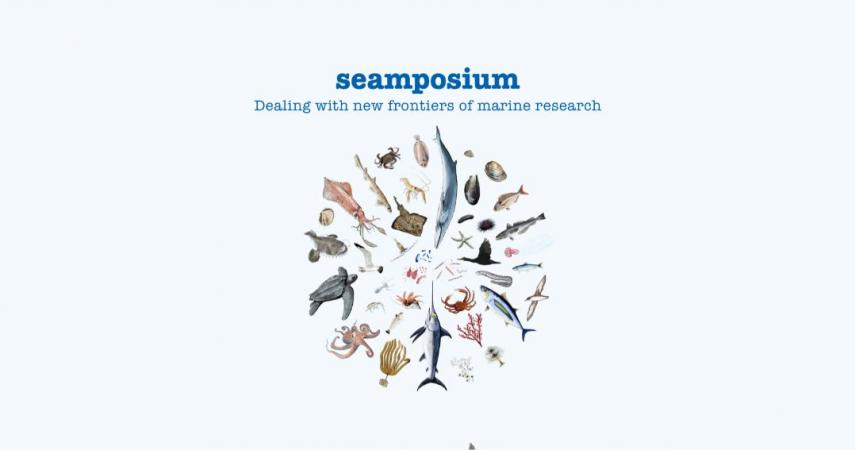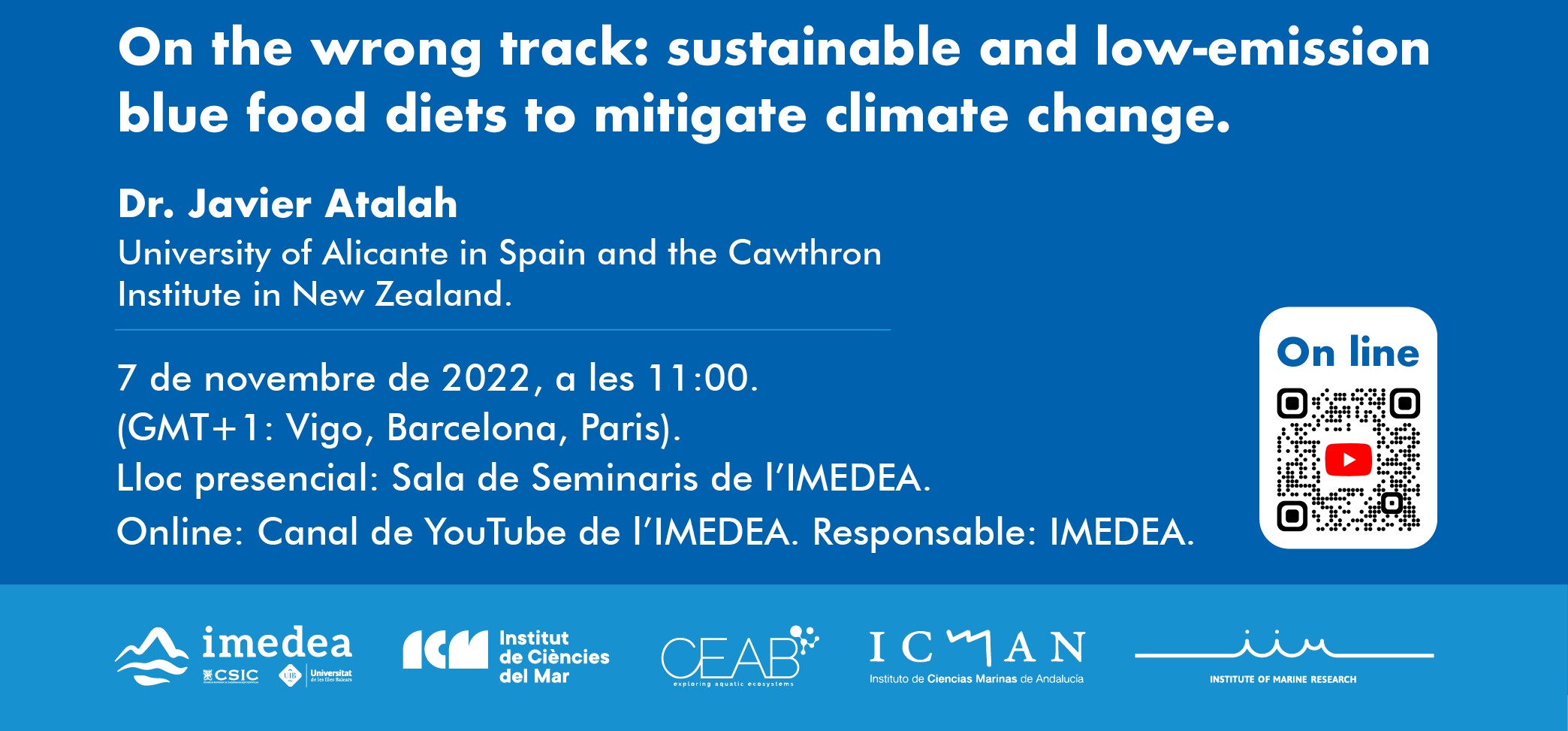On the wrong track: sustainable and low-emission blue food diets to mitigate climate change
Seamposium 2022 | Dealing with new frontiers of marine research

Con motivo de la Década de las Ciencias Marinas impulsada por la ONU (#ODS14) que pretende generar un marco común que garantice que las ciencias marinas respaldan plenamente las acciones para gestionar de manera sostenible los océanos y mares del mundo, y alcanzar así los objetivos de la Agenda 2030 para el Desarrollo Sostenible, los centros de marinos del CSIC: IMEDEA, CEAB, ICM, ICMAN, y el IIM hemos organizado un ciclo de conferencias conjunto titulado “Seamposium: Dealing with new frontiers of marine research” por el cual se crea un Foro de discusión entorno a un seminario mensual realizado por un experto reconocido en diferentes temáticas marinas.
On the wrong track: sustainable and low-emission blue food diets to mitigate climate change
Seafood and other aquatic food (blue food) are often advocated as sustainable protein sources crucial to meeting global food demand. Consumption choices allow citizens to take actions that reduce the environmental burden of food production and tackle the climate crisis. This talk will explore historical blue food consumption trends in Spain, in terms of sources, types and the ecological footprint resulting from their production. Considering global blue food demand is predicted to nearly double by mid-century, this talk will illustrate how consumers’ choices can promote sustainable production practices and mitigate climate change.
PONENTE: Dr. Javier Atalah. University of Alicante in Spain and the Cawthron Institute in New Zealand.
Javier Atalah is a researcher at the Department of Marine Science and Applied Biology, University of Alicante and the Cawthron Institute, the largest independent research institution in New Zealand. His main interests are the interactions between aquaculture and the marine environment, climate change, and the ecology and management of invasive species.

